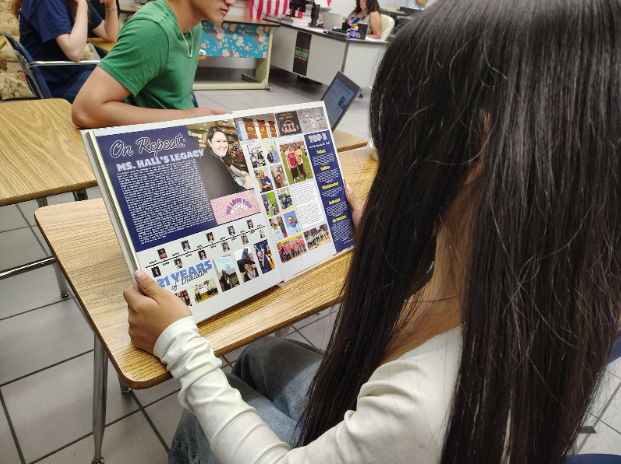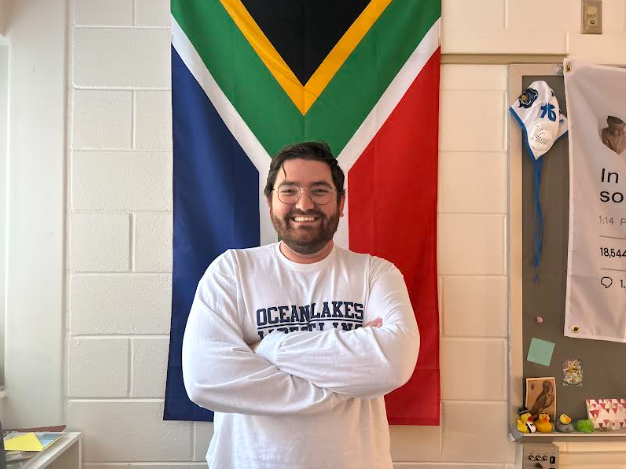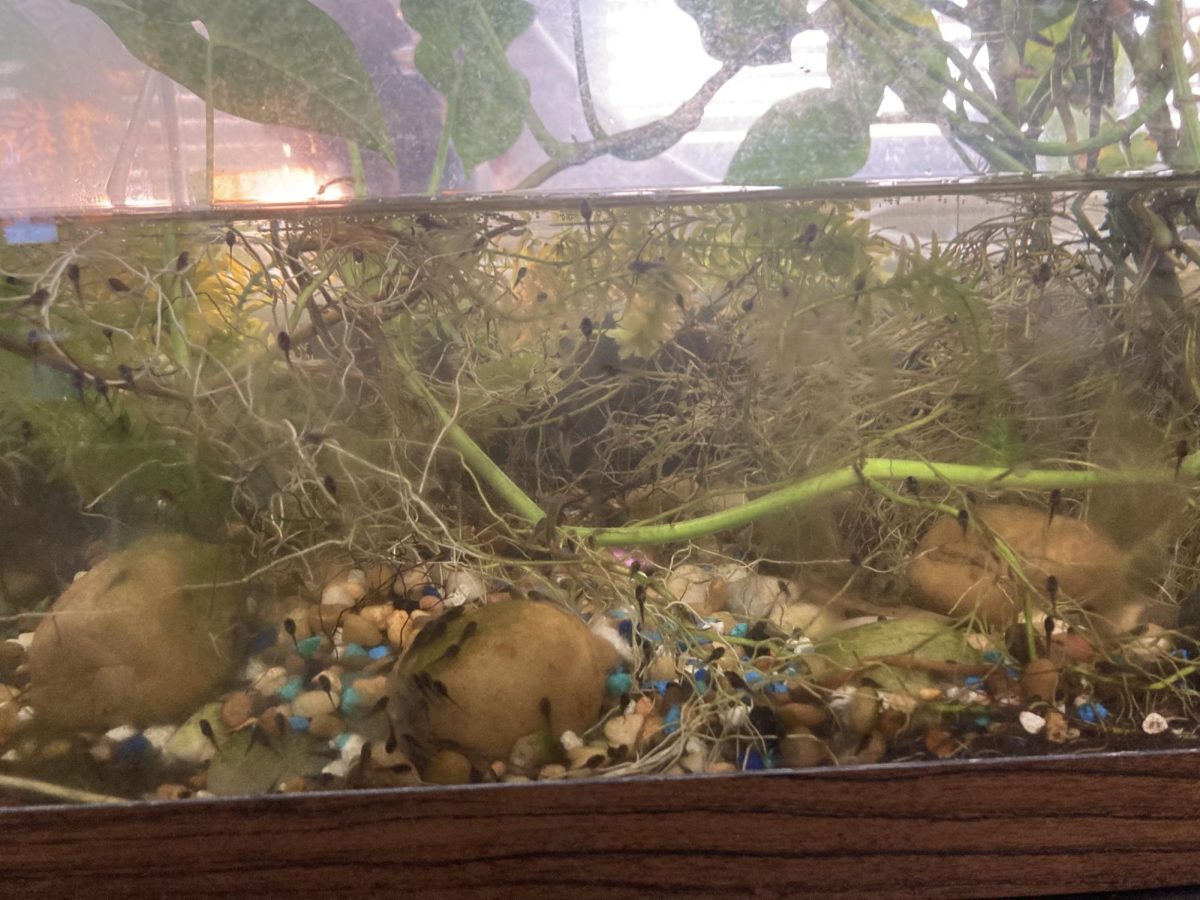National Foreign Language Week is scheduled to run from March 3-9, 2024, in schools around the country.
The purpose of this week is “to raise awareness of the benefits of learning a language while recognizing that the world is becoming increasingly globalised and interconnected,” according to nualang.com.
Students taking a language class are encouraged to expand their curiosity and engage in unique projects to learn more about culture. The benefits of multilingualism are numerous; to read more about that, click here.
For some students at Ocean Lakes, this seamless integration of multiple languages is a routine part of their lives. It is challenging to uphold fluency in multiple languages. However, as seen through the unique experiences of four students, a few patterns emerge to help retain fluency.
Method 1: Explore classical literature written in the language
For freshman Anna Keck, being fluent in Russian is a large part of her daily life.
“My first language was, in fact, Russian, so English was my second language,” said Anna.
She didn’t get a chance to practice speaking English until kindergarten, though she absorbed it from there due to immersion at school.
Oftentimes, children who grow up in a bilingual household lose proficiency in their native language as they learn more English, according to a scientific study published by the National Institutes of Health.
For Anna, continuous interaction with Russian in both a written and spoken manner enhanced her love of the language and allowed her to stay proficient in it.
“My favorite thing about Russian is probably the literature I am able to read because of it,” said Anna. “I am a huge fan of most of the Russian literary giants, so I am very lucky to be able to read their works in [their] original language. Right now, I’m reading a collection of short stories by Anton Chekov over the weekends.”
In addition to reading, Anna speaks to her relatives in Russian.
“Specifically, I still have to talk to my grandparents in Russian since they never took the time to learn English,” said Anna.
Anna is fully fluent in both Russian and English, and she is currently taking French at school.
Method 2: Listen to music to “help keep it fresh”
Senior Mert Yercel started his language journey with Turkish, his native language. A unique circumstance added English to the mix.
“I moved to the USA during second grade, and I learned English here,” said Yercel.
According to the U.S. Census Bureau, “21% of school-age children spoke a language other than English at home” in 2021. This number has stayed around this level since 2010. Yercel was one of those children until middle school started when he felt that his language was slipping away from him.
“I was losing my Turkish in middle school, [so I] started listening to music to help keep it fresh,” said Yercel.
This desire to reinvigorate his knowledge of Turkish had broad benefits. He sharpened his skills, became more comfortable and rekindled his love for the language. He also discovered new musical favorites.
“I like Turkish rock such as the bands Duman and Adamlar,” said Yercel.
Method 3: Connect to the culture
Sophomore Raghav Mantri has always spoken Hindi with his family.
“I was bilingual from a very young age,” said Raghav. “I grew up learning English and Hindi at the same time.”
At home, his parents always spoke to him in Hindi, so he initially learned by listening. As he grew older, his parents began to teach him more of the specifics. The deepening of his connection with his culture motivated him to continue his language-learning journey.
“My favorite part about Hindi is that it unlocks being able to talk to family in India or watch Hindi movies without subtitles,” said Raghav. “The fact that it connects me more to my culture is very impactful, and helps me learn more about my identity.”
Instead of using a typical language learning tool like Duolingo, Raghav keeps his Hindi strong by conversing with his parents and other family members. Recently, he has challenged himself to learn a new skill.
“At the moment I only know how to understand Hindi and speak it, but for the last few months, I have been learning how to read and write in the language as well,” said Raghav.
Method 4: Take advantage of exchange programs
Of the approximately 2000 students attending Ocean Lakes this year, it is rare to find multilingual students. In fact, in a recent survey of 66 students, 80.3% spoke one language, 15.2% spoke two languages and 4.5% spoke three languages. Junior Lina Miszori, a German exchange student, is part of the 4.5% of trilingual students.
“My first language is obviously German,” said Lina. “In fifth grade, I started French. In sixth grade, I started English.”
Multilingualism is common in Europe. According to EuroNews, about 65% of the continent’s population can speak at least one language other than their native tongue. In Germany specifically, 78.7% of the population speaks more than one language. Compared to the 20% of American adults who speak more than one language, this is a colossal difference.
Lina attributes her multilingualism to the number of hands-on opportunities and international exchange programs that are available for students of all ages.
“In the beginning of seventh grade, I went for the first time, all alone to France for my first exchange for two weeks,” said Lina. “I made my second exchange in ninth grade to France.”
Now, she spends her junior year in the USA through an international exchange program called the Congress-Bundestag Youth Exchange (CBYX).
In addition to sending students from Germany to the USA, students from the USA can also sign up to spend a year in Germany. Outside of these official exchange programs, Lina and her family often visit countries surrounding Germany, with France being a common destination. These travels enhance her command of the languages she knows while exposing her to new ones.
“You just learn super fast when you are in another country and surrounded by the language,” said Lina.









![Junior Haymi Patel sits in the postoperative unit as she plays with the children. Haymi found that bonding with the children also bonded her to those she knew. “There are certain patients that you definitely bond with more and bonding with those patients together [left us a lasting impression],” Haymi said. Photo used with permission by Haymi Patel.](https://olhscurrent.org/wp-content/uploads/2025/05/haymi.jpg)



Nandini S • Mar 13, 2024 at 10:20 pm
Very well researched and clearly articulated methods!